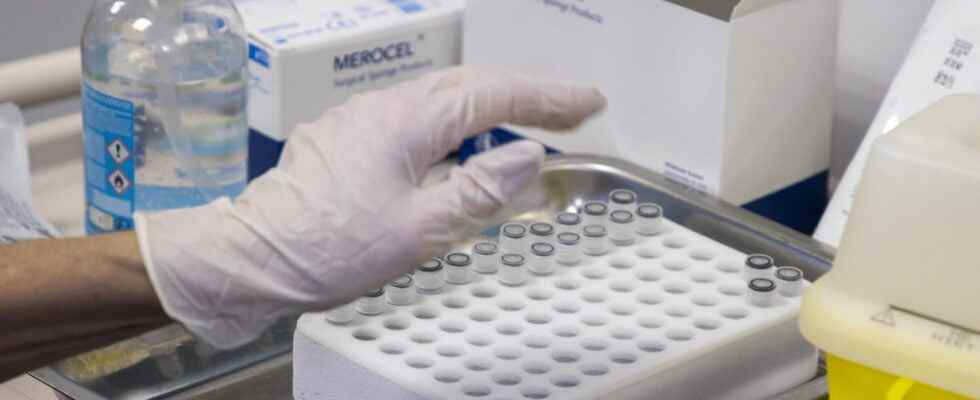DELTACRON. The “Deltacron” variant, a possible combination of the Delta and Omicron strains of Covid-19 discovered in Cyprus, has caused the web to panic. However, the international and French scientific communities continue to plead an almost certain handling error in the laboratory at the origin of the discovery.
While hundreds of thousands of new infections are identified every day, the fear that a new variant will supplant Omicron (having itself bypassed Delta in the space of a few weeks) and relaunching the Covid-19 epidemic has been exacerbated by the excitement around the “Deltacron” this weekend. Indeed, according to Leondios Kostrikis, head of the Laboratory of Biotechnology and Molecular Virology whose remarks were reported by the press agency Bloomberg, a new strain of Covid-19, combining the Delta and Omicron variants, has been identified in Cyprus. “There are currently Omicron and Delta co-infections and we have found this strain which is a combination of the two,” the scientist assured Sigma TV Friday on January 8. His team specifies that 25 cases of “Deltacron” have been observed in Cyprus, eleven of which came from people hospitalized for Covid-19 and fourteen from the general population. And to add, from Bloomberg : “We will have to wait to see if this strain is more virulent, more contagious and if it becomes predominant” on Delta or Omicron. Worried, the professor also assured that “the frequency of mutations was higher in hospitalized people, which could mean that there is a correlation between ‘Deltacron’ and hospitalizations”.
An announcement that has generated many questions about this potential new variant, while many countries are currently facing a fifth wave of the Sars-CoV-2 epidemic. The keyword “Deltacron” thus became the most used word on French Twitter for a few hours on Sunday January 9th.
However, the enthusiasm around “Deltacron” could subside as quickly as it rose. Several members of the international scientific community have already expressed their reservations about the appearance of this new variant, betting on discoveries resulting from contamination in the laboratory. Doubts motivated by the analysis of 24 Cypriot cases of “Deltacron” deposited on the international database Gisaid – analysis which allowed them to create the phylogenetics of the virus, that is to say its family tree. These analyzes allowed several scientists to realize that the sequences of “Deltacron” were not found in the same place of the family tree of the virus. So, Imperial College London virologist Tom Peacock tweeted: “The Cypriot ‘Deltacron’ sequences that several mainstream media are talking about seem to be pretty clearly contamination – they don’t cluster on a phylogenetic tree.” For his part, the epidemiologist Arnaud Fontanet, specialist in epidemiology of infectious and tropical diseases, assured on BFMTV this Monday, January 10 that Deltacron was “probably a contamination error”, indicating that it was preferable to “rule out” the hypothesis of such a fusion of the Delta and Omicron mutations.
However, Sunday January 9, Leondios Kostrikis assured that no contamination within the laboratory had taken place, and that the cases of Deltacron identified “indicate an evolutionary pressure on an ancestral strain to acquire these mutations and not the result of a single recombination event “. The professor of biological sciences at the University of Cyprus added that at least one sequence in Israel deposited in a global database shows the genetic characteristics of the deltacron.
“Deltacron” recalls the risk of recombination of Covid-19
However, “Deltacron” sheds light on the potential “recombination” of Covid-19, a possible route for the rapid evolution of Sars-Cov-2. For such a strain, born from two other strains, to emerge, it would suffice for the same patient to be infected with two different variants of the coronavirus. “A rare event but possible when two strains circulate a lot like at the moment in Europe with Delta and Omicron”, comments on this subject Release. If the two strains then infect the same cell in the patient’s body at the same time, “their genetic information will mix and a new strain will emerge that is probably very different from the previous two,” the daily continues. This recombination scheme is, according to Tom Peacock, expected by the scientific community, if two variants co-circulate for a few months.
